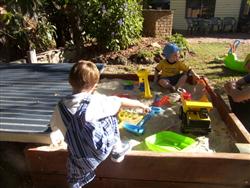Study This Course to Develop Your Understanding of Children

Many people think that childhood development takes place in a linear fashion where each new development builds on the last one. But this is often not the case. Sometimes development slows, or even reaches a plateau for a while. Occasionally it can seem to take a step backwards.
Child psychology is concerned with the development of a person over the course of their childhood. This involves the development of a child's mental processes like intelligence and language (cognitive development), emotional behaviour, social behaviour, and also their physical development.
For convenience, a distinction is often made between these different areas of development but it is really only a theoretical one. It is made simply to help us learn and understand. In reality, the different aspects of development interact with each other. When problems develop in any area of development, they usually become rapidly evident in other areas as well. The study of child psychology is partly concerned with identifying such interrelationships.
Prepare Yourself For A Career Working With Children
This extremely interesting course equips students with knowledge of different theories of childhood development from some of the key thinkers in this field. If you haven't previously studied psychology you'll learn how to think critically, how to examine observations and how to review findings from investigations.
Knowledge of child psychology is fundamental to the study of other areas of psychology such as social psychology, educational psychology, and developmental psychology.
Choose this course as an adjunct to other studies, as part of a broader qualification or as a stand-alone subject to fill a gap in your knowledge.
The course has great appeal to students of psychology and counselling as well as professionals working in related fields.
Student Comments
"It has been a truly invaluable learning experience for me. I want you to know that I have learnt so much from all of your constructive input and guidance throughout each lesson of the course." (Jenelle Heidi )
"(The Child Psychology course) has helped me understand my students better and helped me to see how I can structure their course in order to make learning fun and fruitful. Thank you, I have enjoyed these units greatly." (Debbie)
Course Aims
- Identify key concepts and issues in child psychology
- Explain theories on the psychology of the newborn infant.
- Explain the different types of sense discrimination that babies develop.
- Identify how children learn and influences on learning.
- Discuss theories of emotion and their basis in child behaviour.
- Explain how children develop cognitively
- Explain how children develop language.
- Explain influences on the development of intelligence in a child.
- Explain personal aspects of socialisation.
- Explain factors affecting the development of morality in children
- Explain the development of sexuality within children.
- Explain the impact of schooling and family structures on personality development.
Duration: 100 hours
Course Structure
There are 12 lessons as follows:
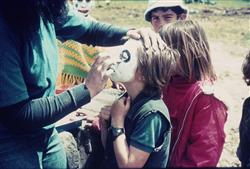 1. Introduction to Child Psychology
1. Introduction to Child Psychology
Levels of development, nature or nurture, isolating hereditary characteristics, Cause versus correlation, continuity versus discontinuity, cross sectional and Longitudinal studies, Reliability of verbal reports
2. The New-born Infant
The Interactionist Approach, Range of Reaction, Niche Picking, Temperament Stimulus seeking, Emotional Disturbances During Pregnancy
3. States & Senses of the Infant
Sensory Discrimination, Infant States (sleep, Inactivity, Waking, Crying etc), Why are Psychologists so concerned with defining and describing these infant states?, Habituation, Crying, Soothing a Distressed Baby, Sound Discrimination, Smell and Taste Discrimination, Visual Discrimination, Depth Perception, Oral Sensitivity
4. Learning
Habituation, Vicarious Learning, Classical Conditioning, Operant Conditioning, Reinforcement, The Importance of Learning Control, etc
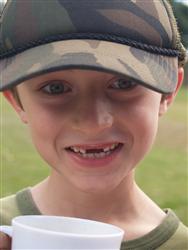 5. Emotions and Socialisation
5. Emotions and Socialisation
Producing and Recognising Emotional Expression, Smiling, Biological Explanation, Perceptual Recognition Explanation, The Mother-Child Attachment, Fraudian Approach Bowlby's Approach, Social Learning Approach, Harlow's Approach, The Role of Cognition in Attachment Formation, Maternal Attachment, Fear, Social Learning, Perceptual Recognition, Woman's Duel Role as Mothers and Workers, Is Day Care a Developmental Hazard to Children
6. Cognitive Development
Developing the ability to reason.
7. Language Development
Is language learned, or are we genetically programmed with it, The Social Learning Approach, The Hypothesis testing Approach, Under extending
8. Intelligence
Measuring Intelligence, Cultural Bias, IQ, Testing Intelligence as a tool.
9. Socialisation – Part A
Social Cognation -self awareness, -awareness of others as individuals in their own right, -the development of empathy, -taking turns, -having a point of view/perspective,-ability to see something from another persons perspective. Friendships, Social Scripts Scripts that Pretend Play
10. Morality
Moral development, Aggression & Altruism, Freuds Approach, Paget's Approach, Kohlberg's Approach
11.Sexuality
Freuds phases (oral phase, anal phase, phallic phase, latent phase, genital phase) The Acquisition of Gender & Role Identity, Concept of psycho-social development
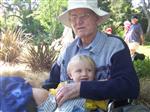 12. Socialisation – Part B
12. Socialisation – Part B
The Family Influence, Discipline, Siblings, Family Structures, School Influence, Peer Influence, Acceptance & Rejection, Imitation & Reinforcement
EXAMPLES OF WHAT IS COVERED:
Discuss what environmental and social aspects you think are required for the “ideal” environment for a developing child in your country.
Discuss how genetic and environmental factors operate together in influencing the child's personality development"
Identify and describe one personality characteristic which may be genetically determined. What evidence supports the possibility that it may be hereditary?
Genetic and environmental factors operate together in influencing the child's personality development "Discuss the above statement.
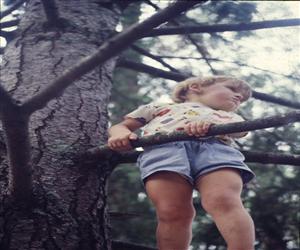 Describe one personality characteristic which may be genetically determined.
Describe one personality characteristic which may be genetically determined.
What evidence supports the possibility that it may be hereditary?
Identify the kind of learning in which a stimulus which usually produces an unconditioned response is manipulated to produce a conditioned response. Give an example of this kind of learning.
Discuss exactly how you would use operant conditioning to encourage a child to socialise.
Use the perceptual recognition approach to explain smiling and fear in infants.
Discuss how are Freud’s, Harlow’s and Bowlby’s explanations of the formation of mother-child attachments different? Which do you think is more credible and why?
Explain reflection-impulsivity, and its significance in cognitive development.
Explain the strengths and weakness of social learning theory in explaining language acquisition.
Consider whether "Intelligence is overall genetically determined".
THE IMPORTANCE OF LEARNING CONTROL
In the adult context, control is a common term, but in the context of an infant, learning control is a different issue. Here it refers to the infant’s ability to control their environment; to control what happens next. The infant learns this through having a positive, exploratory relationship with the environment. He learns by having experiences which cause things to happen, or witnessing the outcomes of his activities. In a sense, this is a very healthy process, even when an action and result is a negative one. Without some negative experiences, the child might not learn how to avoid such things.
By learning control, a child has an effect upon the world around them, and this knowledge stimulates development at all levels: cognitive, emotional and social. Infants, who do not learn control, instead learn to feel helpless. This is called learned helplessness, and is likely to remain with them for the rest of their lives. They do not want to make an effort in what they do as adults, because they have learnt that the outcome is nothing.
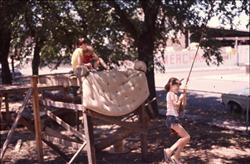 Seligman (1975, 1978) found that apathy or learnt helplessness can develop if infants to do not perceive a connection between their actions and outcomes. Watson and Ramey (1972) placed infants on a pillow. In group 1, if they moved their head, lights would come on a mobile. In group 2, if the children moved their head, it would not affect whether the light would come on or not. Later, both groups of children were placed on a pillow where they could control the light. The children in group 1 began to move their heads to put the lights on, whilst the children in group 2 did not. They had already learned that they had no control over the situation – learnt helplessness.
Seligman (1975, 1978) found that apathy or learnt helplessness can develop if infants to do not perceive a connection between their actions and outcomes. Watson and Ramey (1972) placed infants on a pillow. In group 1, if they moved their head, lights would come on a mobile. In group 2, if the children moved their head, it would not affect whether the light would come on or not. Later, both groups of children were placed on a pillow where they could control the light. The children in group 1 began to move their heads to put the lights on, whilst the children in group 2 did not. They had already learned that they had no control over the situation – learnt helplessness.
This is also connected to emotions. Children will quickly learn that they can encourage a response from their caregivers by crying, smiling, laughing and so on. However, if the caregivers are unresponsive, the child will quickly learn that their crying, smiling or laughing will produce no response, so they may become apathetic and socially unresponsive.
Develop an understanding of how children think, and how their psychology changes as they develop. This course will be of value to anyone who works OR lives with children (e.g. parents, play leaders, teachers, etc).
Benefits of Studying This Course
Psychologists study children and their development because it helps us to understand what is normal behaviour for a child at any particular age. This helps us to recognise when a child might have problems and if they need extra support. The study of child psychology also helps us to understand more about ourselves as people, our relationships and families.
The Child Psychology course is aimed at people who are seeking careers in the following fields:
- Youth work
- Child and adolescent counselling
- School counselling
- Teaching, teacher aides & school employees
- Child psychology
- Social work
- Child care
- Children's services
- Medical and health professions
The course may also be of value to people who wish to enhance their personal knowledge or who are considering a career change into a position which involves more direct involvement with children or which requires a better understanding of childhood development.